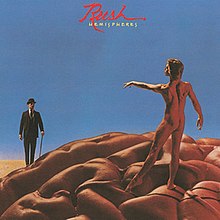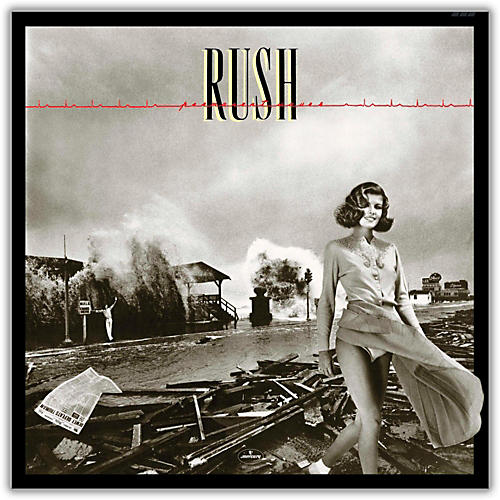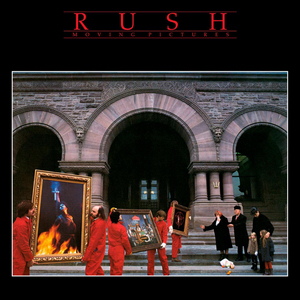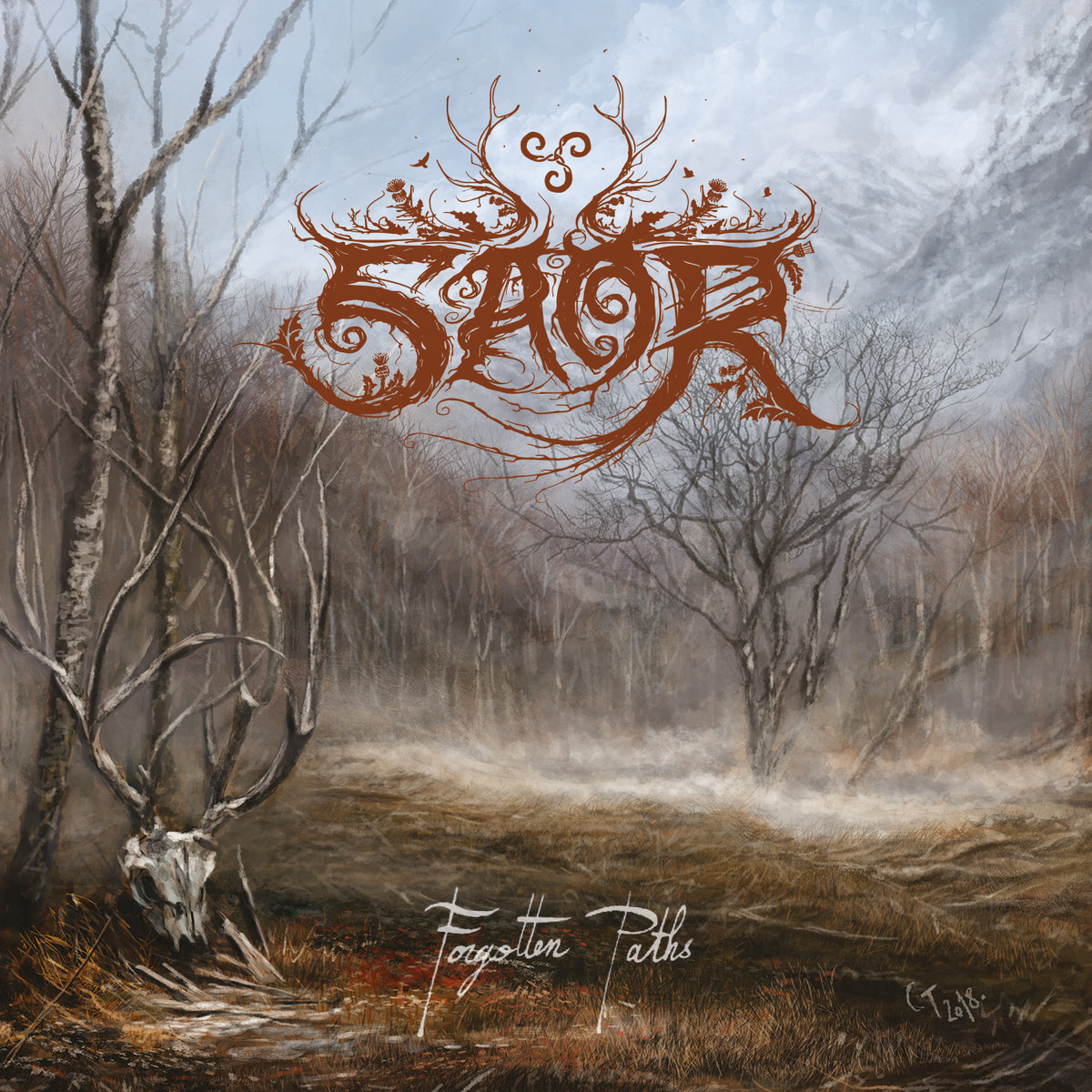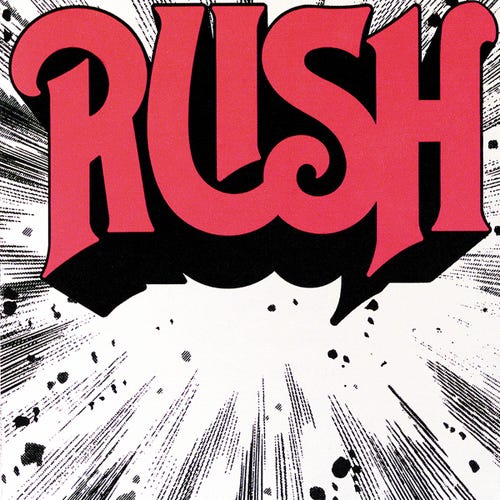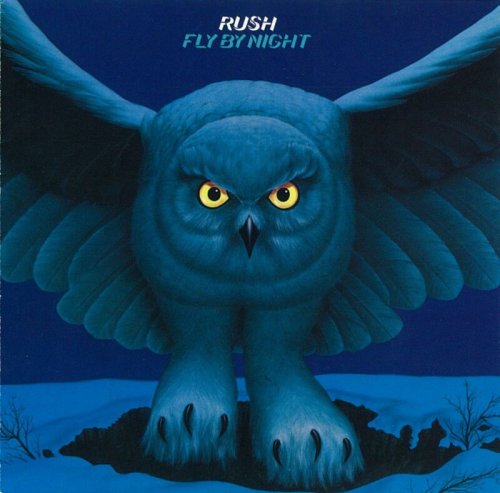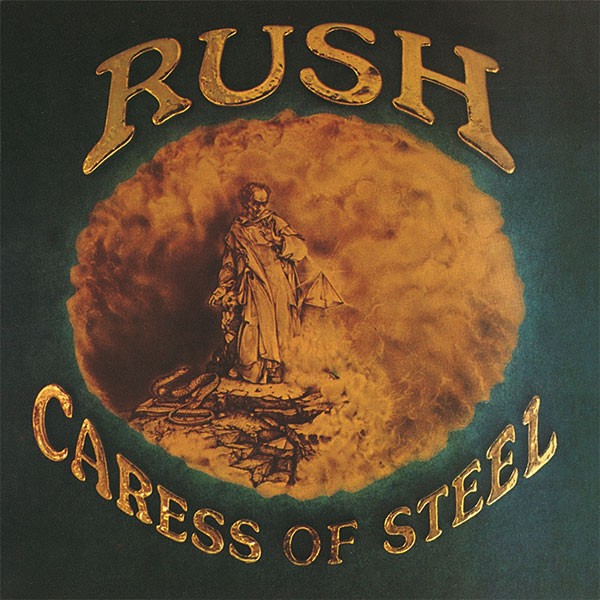So, let's recap where the story ended in part 1; Rush had just released Caress of Steel, which bombed critically and financially. This led to their record company wanting them to make a record similar to Fly By Night, which was received and sold much better by comparison.
However, Rush didn't do that; They did write a couple of more radio-friendly tracks on the album's B-Side, but they continued off of Caress of Steel in the riskiest move of their entire career by having a A-side entirely consist of a 20 minute song, even longer than the 19 minute Fountain of Lamneth. And well, it shouldn't have worked, but this album ended up being their magnum opus.
Album 4: 2112
This is the album that made Rush a household name and one of the biggest prog rock bands of all time. Released on April 1, 1976, this album made waves in not just the prog scene, but the rock scene in general (The April Fool's joke that year must've been that this album was good) and put Rush on the map. It's for good reason to because not only is this my favorite Rush album, but it's my favorite album of all time. Yeah, let that sink in. After a mixed bag like Caress of Steel, Rush improved upon that record in every way and blew us away with a full album for the first time ever. It's truly impressive.
So, let's talk about the most talked about song on the record first, the title track. A 20 minute album opener that blows anything they did previous out of the water, 2112 is one of the essential rock songs, and especially prog rock songs. Immediately, this is an improvement over The Fountain of Lamneth and The Necromancer; The transitions from section to section are much smoother and the individual instruments and band members shine in many different parts. Lyrically, this track takes place far into the future, that being 2112, and a man finds an old guitar of ancient days, who shows it to the Priests of Syrnix, the leaders of this society. They deny its creative potential, and the man goes into exile after the embarrassment. Then an unknown group of people say "They have assumed control", and the people who say this are left up for interpretation. Unlike the previous tracks, this one quite a lot of story material to get through, and not a single minute of this track is wasted on filler segments. The music flows beautifully from segment to segment and the lyrics are easy to follow and compelling. This is far from pretentious, as prog can often become, and it's definitely one of the most accessible 20 minute prog tracks out there. I can't properly describe the feelings I have for this track. Just listen to this and soak in the prog/hard rock goodness that Rush gave us.
What people often forget about this album is how good the b-side is too. Yeah, 2112 gets all the praise, but the B-Side sounds like Fly By Night-era rockers, but they're all consistently great. A Passage To Bangkok is one of the quintessential Rush hard rock songs. Lyrically, it's just about smoking other locations weed, but it works so well and is not their deepest work, but it's some of their most fun. The guitar work is great here as is every instrument. Fun 70s rock at its best.
The Twilight Zone is one of my favorite Rush songs ever. It's based on a select couple episodes from the show of the same name, and acts as a loving tribute to the show. While I have never watched it, the creativity found in these lyrics brings a smile in my face, and it creates a mysterious atmosphere that's satisfying in all the right ways. It's simpler than a typical Rush track instrumentally, but it works very well and is the main reason for that atmosphere I love.
Lessons is different than the previous two tracks lyrically because it was written by Alex Lifeson rather than Neil Peart, but it's very effective in conveying a message about teaching what your parents taught you. It's similar to the Presentation section of 2112, at least in the verses anyway, but it's a solid showcase for Alex Lifeson's guitar playing and the message is really compelling to me.
The next track Tears is a love ballad, a rare entry by Rush standards, and it's really effective. It gives the album a needed variety, as it stands as one of the most unique tracks of Rush's entire career. It's another one of my favorites because of how genuine it is. I'm not sure if this was written from a real experience or if it was a story made for the song, but either way, it's startlingly effective and well-written.
The final track on 2112 is Something For Nothing, which is a killer way to end this disc. It's basically an atnthm about getting up and doing something, which is really what I need at the moment, and this track's been speaking to myself recently. It also helps that it has a great instrumental that's one of the most energized on the entire record and it makes me wanna punch through a million brick walls. Just a perfect closer.
So yeah, I've talked about this album enough. I can't say enough about how great this record is and how it effected me. Just listen to it. Yeah, you, if you haven't, LISTEN. TO. IT.
So, let's talk about the most talked about song on the record first, the title track. A 20 minute album opener that blows anything they did previous out of the water, 2112 is one of the essential rock songs, and especially prog rock songs. Immediately, this is an improvement over The Fountain of Lamneth and The Necromancer; The transitions from section to section are much smoother and the individual instruments and band members shine in many different parts. Lyrically, this track takes place far into the future, that being 2112, and a man finds an old guitar of ancient days, who shows it to the Priests of Syrnix, the leaders of this society. They deny its creative potential, and the man goes into exile after the embarrassment. Then an unknown group of people say "They have assumed control", and the people who say this are left up for interpretation. Unlike the previous tracks, this one quite a lot of story material to get through, and not a single minute of this track is wasted on filler segments. The music flows beautifully from segment to segment and the lyrics are easy to follow and compelling. This is far from pretentious, as prog can often become, and it's definitely one of the most accessible 20 minute prog tracks out there. I can't properly describe the feelings I have for this track. Just listen to this and soak in the prog/hard rock goodness that Rush gave us.
What people often forget about this album is how good the b-side is too. Yeah, 2112 gets all the praise, but the B-Side sounds like Fly By Night-era rockers, but they're all consistently great. A Passage To Bangkok is one of the quintessential Rush hard rock songs. Lyrically, it's just about smoking other locations weed, but it works so well and is not their deepest work, but it's some of their most fun. The guitar work is great here as is every instrument. Fun 70s rock at its best.
The Twilight Zone is one of my favorite Rush songs ever. It's based on a select couple episodes from the show of the same name, and acts as a loving tribute to the show. While I have never watched it, the creativity found in these lyrics brings a smile in my face, and it creates a mysterious atmosphere that's satisfying in all the right ways. It's simpler than a typical Rush track instrumentally, but it works very well and is the main reason for that atmosphere I love.
Lessons is different than the previous two tracks lyrically because it was written by Alex Lifeson rather than Neil Peart, but it's very effective in conveying a message about teaching what your parents taught you. It's similar to the Presentation section of 2112, at least in the verses anyway, but it's a solid showcase for Alex Lifeson's guitar playing and the message is really compelling to me.
The next track Tears is a love ballad, a rare entry by Rush standards, and it's really effective. It gives the album a needed variety, as it stands as one of the most unique tracks of Rush's entire career. It's another one of my favorites because of how genuine it is. I'm not sure if this was written from a real experience or if it was a story made for the song, but either way, it's startlingly effective and well-written.
The final track on 2112 is Something For Nothing, which is a killer way to end this disc. It's basically an atnthm about getting up and doing something, which is really what I need at the moment, and this track's been speaking to myself recently. It also helps that it has a great instrumental that's one of the most energized on the entire record and it makes me wanna punch through a million brick walls. Just a perfect closer.
So yeah, I've talked about this album enough. I can't say enough about how great this record is and how it effected me. Just listen to it. Yeah, you, if you haven't, LISTEN. TO. IT.
GRADE: A+
So, after the rogue success of 2112, Rush had the creative freedom to do whatever they wanted. So, they went with a more mystical sound on their follow-up record, A Farewell To Kings.
Album 5: A Farewell To Kings
Since 2112 worked so well, the band went on with the prog sound and delivered yet another classic release in A Farewell To Kings. While 2112 and Hemispheres, the latter of which I'll talk about next, tend to get the most credit out of the pre-1980s Rush material, I feel that this should get just as much praise as those ones because this album is something special.
While 2112 had one prog epic on one side and the rest was the last of their more classic rock oriented sound, this album is flat out progressive rock and it kills absolutely. While 2112 was very sci-fi heavy, this one overall feels more mystical and fantasy-driven. The title track start out with a very mellow and atmospheric acoustic guitar mixed with some fantasy-inspired keyboards that then takes off into a great prog rocker that feels like what Lord of the Rings characters would listen to if they were progheads. It sets the tone for the album well and the instrumentation and lyrics are all very well done. This isn't the best song on the album, but it's probably the best one they could have picked as an opener.
The album continues with the terrific Xanadu, which is arguably the best song on the album and one of the best Rush ever recorded. It builds similar to how the previous track built, but this time it relies on synths before becoming a song covered in excellent performances and composition, all smoothly put together. Lyrically, it talks about a man who searches and finds immortality and sooner regrets it. What I find so amazing about this track is how well everything fits together. There are so many little sections that range from soft to fast and intense that any other band would have a difficult time tying together, but Rush makes it look easy. It all blends with the lyrics, which start out optimistic and end regretful and remorseful. It truly is peak prog Rush and one of their essential tracks.
Another essential track is the one that comes right afterwards; Closer To The Heart. Easily the most famous song from this record in terms of radio play, this track is just shy of three minutes, but is able to leave a massive impact because of its lyrics. It's basically an ode to all who put their heart into their craft and things they've done. It's very sincere writing from Neil Peart, who shows off how good of a lyricist he is, and the rest of the band put in good performances as well. It's as simple as a Rush song can be, but it works so well.
Cinderella Man and Madrigal are very good entries onto the tracklist, even if they aren't the best on the album. They're very much "calm before the storm" kind of songs, and they work both individually and as part of the album. They continue on the fantasy vibes found throughout the record and work, even if they can get cheesy, but Rush as always been that way, so I don't mind.
The album then closes with Cygnus X-1 Book 1: The Voyage, which details an explorer getting trapped into a black hole, and it leaves on a cliffhanger, to be picked up on the next album. This goes into more sci-fi vibes like on 2112 rather than talk about dining on honeydew and turning the pages of history. This track has a lot of tension and unease to it, in both the lyrics and the music. Geddy Lee's first bass line on the track is one of my all-time favorite bass lines ever played by him, and everyone else gives their all as always. If I had bought this album and 1977 and had this cliffhanger after such an eerie and complex track, I would be so excited for the next installment. It honestly makes perfect sense marketing wise; It's like leaving a sequel to a film on a cliffhanger and people will probably buy to see or hear the next part, and it works so well here.
So yeah, this album does not seem to get enough love, even if it does under the hardcore Rush fans. It's one of their most consistent releases front-to-back, and every song has all kinds of merit. It's a worthy follow-up to 2112 and probably my second favorite Rush album only behind that record.
GRADE: A+
Picking up after the tour for A Farewell To Kings, the band simply didn't know where they wanted to go next. They had many sessions, and finally came up with extremely complex compositions that were arguably their most ambitious they did at that time and that they ever did. As frustrating as many of the writing and practicing sessions were, the recording was even worse. While they record 2112 in five weeks and A Farewell To Kings, this next album took about two months to record, and what made that worse is that Geddy Lee could barely hit his signature screeching high notes. This proved to be painful for Lee and called the weeks he recorded vocals "The worst two weeks of his professional career". The band only got one day off after three months of recording and mixing, and took an extremely long vacation to recover. However, the result was their most complex album they ever produced; Hemispheres.
ALBUM 6: Hemispheres
As not particularly mainstream and accessible A Farewell To Kings got in places, Hemispheres was like that on steroids. When Rush says this was a hard album to perform, you know what you're getting into. This is some of the most complicated rock music ever recorded. At a mere 4 tracks, it seems like an EP until you realize its 36 minutes long. Yeah, this deserves to be called an album.
It starts out with Cygnus X-1 Book II: Hemispheres, which takes the story in an unexpected direction. After our protagonist gets sucked into a black hole, he encounters a conflict between the gods that pulls man into chaos, and the mans cries is heard about this conflict and because of this, the gods stop fighting and he becomes a god himself, the god of balance. Yeah, bet you didn't see that coming. I didn't either when I first learned what it was about. Anyway, I overall prefer the first part because of its eerie atmosphere and tension, but this is easily a worthy follow-up. The lyrics are once again silly, but they work extremely well and you can tell that this took a while to make this flow perfectly as well as have so many great moments in it. If I were to compare this track to 2112, I would say it's faster-paced and larger in scale, but not as easy to follow narratively, since it often jumps from perspective of the two gods fighting and the main character. 2112 is much simpler to follow in my opinion, and I do prefer it over this, but this is still a more than worthy entry in Rush's catalog because it's engaging and, while not the most accessible Rush track, is still worthy of praise even if this isn't your thing.
Circumstances follows Cygnus and is a terrific rocker that is one of my favorite Rush songs ever. I don't know what it is about this track, but every time I hear it, I can't help but love it. I think it probably has to do with the lyrics about how circumstances are all a part of life and we can't avoid them. It's a simpler Rush track; It's what I imagine a heavier Closer To The Heart sounding like, and I'm surprised it's not more popular for that reason. This is extremely radio friendly with relatable lyrics and I think could've been a hit, but as far as I know, it didn't chart, possibly because this record has a reputation of not being very accessible. Oh well. I love it still.
The Trees is one of the few prog era Rush songs that does nothing for me. Lyrically, it's about the trees fighting over ground. No deeper meaning, just trees fighting. I know I've defended lyrics that talk about entering a black hole and becoming a god and unknown forces taking over a solar federation after a man discovers a banned guitar, but this is just too silly for me. It's not awful, but it just leaves me with an "eh" feeling.
Now, let's talk about the real kicker, perhaps the main reasons why the recording sessions lasted so long; La Villa Strangiato. Holy crap, what an instrumental cut! This is my favorite rock instrumental of all time, hands down. It's incredibly captivating throughout, from Geddy Lee's killer bass lines, Alex Lifeson's amazing solo and great riffs, and the best drum performance of Neil Peart's entire career. 9 minutes of pure instrumental bliss that blows me away every time and a perfect final track for an album. Every part is well-played and smoothly transitions from all these other complicated parts that are just as good as the last. It really shows the care and effort Rush can put into their song and it also shows how far they've come from messier long compositions like The Fountain of Lamneth. A whole 9 minutes of musical brilliance is better than a 19 minute slog fest that only occasionally shines. I was wowed the first time I heard it and I still am.
So yeah, Hemispheres is amazing and I love it. This is definitely one of the most interesting Rush albums from its recording and writing to the actual album itself. There are other albums I prefer over this, but this is so good and I can see why this is so many people's favorite Rush record. I just have some hot takes that we'll get to later in the series.
GRADE: A
So, after the hell the band went through to record Hemispheres, they decided to change up their sound in order to be a lot simpler for them to play (At least by their standards) and to fit Geddy's now more limited vocal range better. What was the result when you get a more "mainstream" Rush? Well, you get the album known as Permanent Waves.
Album 7: Permanent Waves
While Hemispheres was arguably their least accessible album, Permanent Waves was arguably their most accessible at the time. While Rush was popular at the time, this album and particularly its first couple singles lead to Rush becoming more popular with the mainstream music listeners, and dear God, did this album crush in every way.
It starts out with a serious contender for my favorite song not just by Rush, but of all time with The Spirit of Radio. Yeah, this song's really that good. The opening guitar riff is one of the best ever played and the way the bass and drums kick in immediately after you hear the riff is so engaging and unique without feeling forced. It even features a reggae section in the bridge that is so smoothly placed after the prog rock parts that it's frankly remarkable, even from what we've seen so far from this band. So yeah, musically, it's absolute bliss. You just have to listen to it for yourself. Lyrically, it talks about how rock radio became filled with commercials and how these radio stations will "Echo with the sounds of salesmen". It is such a perfect fit with the music and it makes for a very relatable concept for many rock fans. It's no wonder why this is still a staple on classic rock radio. It's infectious and amazing in every way.
Freewill is the next song, and acts a worthy follow-up to an act hard to follow. It continues to have a more mainstream sound than Rush had for years at that point, and it works well. It contains one of Alex Lifeson's best guitar solos and some great riffs from him as well. Geddy Lee's bass groove on the track is also infectious and Peart's drumming is always great (I feel like I'm repeating myself here, but I kind of got too). The song lyrically is just about how you have to make a choice no matter what. As the song says, "If you choose not to decide, you still have made a choice". This is also another one of my favorite Rush songs because of its thoroughly engaging instrumental and lyrical content that's some of Neil Peart's best work. Great stuff.
Entre Nous and Different Strings are arguably even more mainstream than Freewill and The Spirit of Radio, because they're shorter and less complex. They're also love songs, which are rare for this band, like I said when I talked about Tears, but this album has two back-to-back! I think the reasoning for this is purposeful, because they're mirror opposites. Entre Nous is about embracing the differences between you and partner, spouse, or whoever you're in a relationship with. It's sweet and ultimately rather heartwarming. Meanwhile, Different Strings is about not being able to embrace the differences that the person you're in love with has, and it's sad, especially after the optimism that came before with Entre Nous. I don't have much else to say about these tracks other than that they're different for Rush, but they're very effective and they give the album an emotional core.
Now, don't go thinking that this album is just filled with radio singles, because it's not. Jacob's Ladder and the fantastic closer Natural Science are both tracks for the fans of their "proggier" material. Jacob's Ladder features some of Rush's best use of synthesizers combined with amazing guitar work and drum work that slowly builds throughout the track creating one of Rush's most epic tracks they ever made. I really can't say much about it other than it's an amazing experience in atmosphere and buildup.
Natural Science is similar to Jacob's Ladder, but it's even better. It's more complex than that track was, and it's so great because of it. It starts out with a beautiful acoustic guitar and Geddy singing about how life began. It eventually goes into so many great sections of musicianship and playing that it can get overwhelming. What holds it together so well are the lyrics, which deal with how life began, where it is now, and where it will go. It's rather thought-provoking, and the music reflects this by being complex as added, making it also somewhat thought-provoking.
So yeah, this is not just one of my favorite Rush albums, but one of my favorite albums of all time. In many ways, similar to A Farewell To Kings, this album is embraced, but often doesn't get enough credit for how it impacted the band. It gave them the strength to expand to a more mainstream sound, but also to keep their prog rock core. If you're unfamiliar with Rush, this is one of the best starting points easy.
Grade: A+
So, after the hit record that was Permanent Waves, Rush continued on this trend and released their most mainstream record yet. While the previous record was the transition into this new sound, Moving Pictures flat-out embraced it.
Album 8: Moving Pictures
Easily Rush's most popular album to date, Moving Pictures was a smash both critically and financially. To date, it has sold over 4 million copes in the U.S alone and brought with it singles that still get constant radio airplay to this day. Does it deserve all the acclaim as it's gotten? Absolutely.
While Moving Pictures isn't my personal favorite Rush album, I do believe it's their most "perfect". By that, I mean this is the one that works best as an album, as it blends the prog rock of 2112 through Hemispheres, the hard rock of the first few albums, the accessibility of Permanent Waves, and the reggae and synths of later releases (We'll get to that in the next installment). None of it feels out of the ordinary and it's a wonderful, cohesive experience.
As for the tracks themselves, I want to start off with the singles you've probably heard a million times before; Tom Sawyer and Limelight. Tom Sawyer is one of Rush's delves into synth-driven music, and it's effective because it allows for all the instruments to be heard in all their glory. The bass, drums, and guitar all get time to shine individually and engage the listener. The lyrics are also great, talking about being a rebel without coming off as angsty. I can't really say much else about it other than this song is great radio rock that you've probably heard.
However, as great as Tom Sawyer is, it oddly enough isn't the single that gets the most replay from me, probably because I hear it often. Limelight is the single that I play more often because it appeals to me more. The lyrics always did feel like an honest of the life of a rock star who plays shows, records music and leaves in "The universal dream" for a living. Alex Lifeson's guitar solo is also one of his best and the riffs are pure Rush joy.
For the "progheads" who dug the longer songs on previous records, there's the almost 11 minute cut The Camera Eye, which isn't their most complicated piece yet, but it's very effective in execution. I love how everything is tied together by synth without getting too heavily embedded in synth, and therefore giving the guitar, bass, and drums all time to shine. While this sounds like a subtle diss towards Rush's synth era, it's not. I just don't think this track would've worked as well within an album like Signals or Power Windows. It really relies on every instrument equally stealing at multiple points, and not being overlaid in synth and electronic effects.
Red Barchetta is another Rush track for those who like the slightly less conventional song structures that Rush is known for. This one is not synth-driven at all and is driven by all the instruments working together so fluidly. The song gives me feelings of nostalgia and excitement, as it talks about riding in a car the protagonist's uncle gave him and he gets in a car chase. It's not as crazy as something like Cygnus, but nothing on this album is and it doesn't have to be; It continues the mainstream route this album gave as well as acknowledging their prog phase in the mid to late 70s.
Another great thing about this album is that it has an instrumental in YYZ. It isn't as nuts as something like Va Villa Strangiato, but it's so addictive. Geddy Lee's bass riff on the track is iconic and drives the song forward. It's less than 4 and-a-half minutes, but it leaves as much impact on you as a crazy prog piece does. It goes to show how iconic and beloved this record is; An instrumental is as iconic as any other song on the album. Rarely ever does that happen, but Rush accomplished this.
However, I don't think the final two tracks get enough credit. Witch Hunt might actually be my favorite track on the entire record because of its dark atmosphere and haunting synth line. It definitely stands as a unique piece in Rush's discography because Rush rarely ever did anything this spooky before.
Meanwhile, the closing cut Vital Signs is a look towards Rush's future. It's the most "Reggae" thing they did to date at this point, and the experimentation worked really well here. The groove is infectious and even somewhat bouncy. It's not a complicated song, but it showed signs Rush could go somewhere doing this, which they may or may not have done.
Overall though, Moving Pictures is perhaps Rush's best album from a consistency. Everyone's performing strong, all the songs are great, and it flows perfectly from track to track. It's not my personal favorite Rush album (I prefer Permanent Waves, A Farewell to Kings, and 2112), but it's still one of my favorite albums of all time and it's a must-hear from Rush.
GRADE: A+
So, unlike the last cliffhanger, Rush decided not to continue on with Moving Pictures' sound and instead became even more mainstream. Where will that lead. Well, you probably already know, but it's worth looking into if you haven't. We'll look at Signals, Grace Under Pressure, Power Windows, and Hold Your Fire next time.

:format(jpeg):mode_rgb():quality(90)/discogs-images/R-830588-1241053153.jpeg.jpg)
